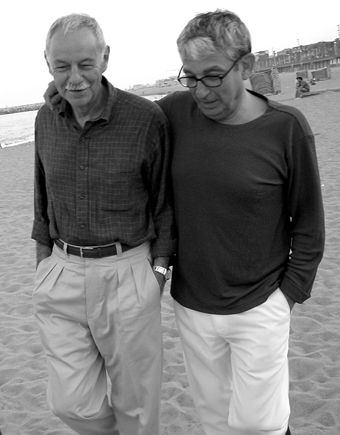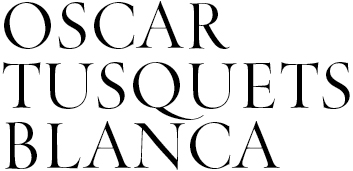Incorrigible
Eduardo Mendoza. Writer. Barcelona, 1943
The friendly and entirely unacademic arrangement whereby I am the one to correct the scripts of Oscar Tusquets’s written work has allowed me to observe in these texts a gradual evolution that could escape the less attentive reader, due to the author’s colloquial style and the apparent disparity of his topics. The writings of Oscar Tusquets, from one book to the next and from chapter to chapter, in terms of their volume and thematic scope, have, whether consciously or not on the author’s part, acquired the hallmarks of a theoretical opus. Before going any further, I should make it clear that my corrections, if that is what they can be called, have always been rather schoolmasterly, concerned with purely formal aspects: substituting one term for another, changing the expository order of a sentence or a paragraph, things which, to my mind, could improve the clarity with which the material is presented. I have never intervened with regard to the content: neither in the ideas expressed, of course, nor in the way they are organised. I have always thought that this seemingly arbitrary or hasty, spontaneous, casual, and sometimes abrupt style was an essential part of his approach to his topic, his path towards the right conclusion, the precise question. In other words, that it was the very essence of his method. In this sense, Oscar Tusquets (like others beyond my remit) is incorrigible. / Too intelligent to accept reality without asking for an explanation, too critical to accept an obvious explanation, too lucid to accept even his own conclusions, with too much vitality to accept the comfort of perpetual uncertainty, Oscar lives in a perpetual argument with things, although not with people, to whom he simply, albeit vehemently, expresses his propositions, his refutations, his retractions, in fact, his incorrigible questions: what is it that we know when we think we know? What is it that we see when we think we see?

Barceloneta Beach. Summer 2002







